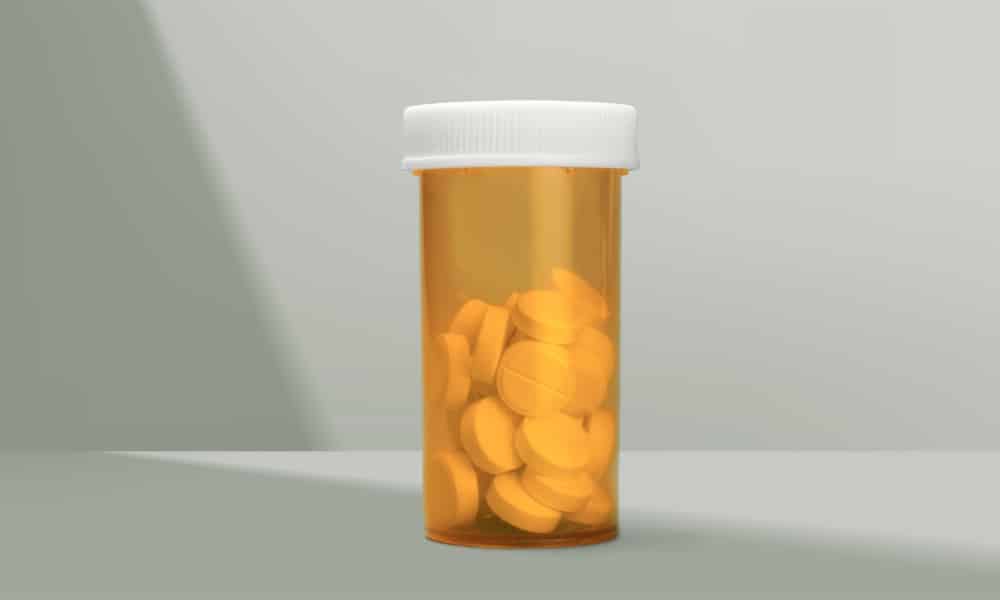Skip To Section
Prescription stimulants can treat ADHD, narcolepsy, and obesity. These medications should only be used with a prescription and under a doctor’s supervision.

What Are Stimulants, and How Do They Work?
Prescription stimulants work by increasing levels of dopamine and norepinephrine. Dopamine is associated with pleasure and reward. Norepinephrine impacts blood pressure and heart rate.
When taken as prescribed, these drugs can boost concentration and alertness. For people struggling with ADHD, this medication can be extremely helpful.
People who misuse stimulants may feel a “rush of euphoria.” They may also experience a heightened sense of energy and alertness. But stimulants can be habit-forming. Over time, you can develop a tolerance to them. That means you need to take more stimulants to feel the positive effects.
What Are the Signs and Symptoms of Stimulant Addiction?
Regular use of stimulants can lead to addiction. Addiction is when you compulsively use the drugs despite their negative consequences. The common behavioral signs and symptoms of stimulant abuse include:
- Spending excess time obtaining, using, or recovering from stimulant use
- Hiding or lying about taking stimulants
- Using stimulants despite them causing issues with work or school
- Needing to take more stimulants to feel the desired effects (This is known as tolerance.)
- Facing legal issues due to stimulant use
- Continuing to use stimulants despite problems with your mental or physical health
Physical signs of stimulant addiction include:
- Nausea and vomiting
- Dizziness or headaches
- Increased heart rate
- Rapid breathing
- Sleep issues
- Intense cravings for stimulants
- Irritation
- Increased panic and anxiety
Long-term side effects are also possible:
- Paranoia
- Anger issues
- Sleep disorders
- Anxiety
- Addiction
Withdrawal symptoms can occur if you stop taking stimulants after using them for a while. These withdrawal symptoms may include:
- Lethargy
- Sadness
- Anxiety
- Increased cravings
There isn’t a single cause for addiction; several risk factors may contribute to prescription stimulant abuse. They include:
- Co-occurring mental health conditions, like ADHD or anxiety
- Lack of information about prescription medications and their dangers
- Environmental factors, like having friends who misuse stimulants
- Past misuse of other substances, including tobacco or alcohol
- A family history of drug misuse
"*" indicates required fields
Fill out the form below and one of our admissions team members will reach out to you:
"*" indicates required fields
Types of Stimulants
Some brands of prescription stimulants are better known than others. The following stimulants are approved for use as medicine under a doctor’s supervision:
- Amphetamines
- Dextroamphetamine
- Methylphenidate
- Methamphetamine
Amphetamines and Dextroamphetamine
Amphetamine and dextroamphetamine are medications that belongs to the class of central nervous system stimulants. It is commonly used to treat Attention Deficit Hyperactivity Disorder (ADHD) and narcolepsy. Amphetamines work by increasing levels of dopamine, norepinephrine, and serotonin in the brain, which improves focus, attention, and alertness.
Some common brand names for amphetamine medications include:
- Adderall
- Evekeo
- Dyanavel XR
- Dexedrine
- Vyvanse
- ProCentra
- Zenzedi
It comes in immediate-release tablets as well as extended-release capsules. Amphetamine and dextroamphetamine medications have been approved by the FDA for use in children over the age of 3 years old with ADHD and in adults with narcolepsy. However, it may also be prescribed off-label for other conditions such as depression, obesity, and chronic fatigue syndrome.
Methylphenidate
Methylphenidate ensures that norepinephrine and dopamine accumulate in the brain. The medications do this by preventing the reuptake of these hormones, thus improving focus.
Methylphenidate comes under the brand names:
- Concerta
- Daytrana (transdermal patch)
- Ritalin
- Ritalin LA
These medications are prescribed to treat attention deficit hyperactivity disorder (ADHD) and narcolepsy. They belong to a class of drugs called central nervous system (CNS) stimulants. Methylphenidate works by increasing the levels of certain chemicals in the brain that are responsible for regulating attention and behavior.
Methamphetamine
Scientists are still working to understand how methamphetamine medications help people with ADHD. They know that the makeup of methamphetamine is similar to the makeup of amphetamines and ephedrine and that methamphetamine can increase blood pressure and suppress appetite. This comes under the brand name Desoxyn.
Why Would a Doctor Prescribe Stimulants?
Stimulants are prescribed for the following conditions:
- Attention deficit hyperactivity disorder (ADHD)
- Narcolepsy
- Depression
They can help people who have concentration difficulties or memory issues. They may also be prescribed to people who deal with hyperactivity or have problems completing everyday tasks.
Both children and adults can receive prescriptions for stimulants.
Dangers of Mixing Stimulants with Alcohol
Some people misuse prescription stimulants by mixing them with alcohol. They often assume that the two substances will cancel each other out because alcohol is a depressant. That’s not necessarily the case. There are several risks associated with mixing alcohol and stimulants like Adderall, Concerta, or Dexedrine.
Some of the more serious dangers include:
- Alcohol poisoning or a drug overdose that could lead to death
- Elevated heart rate and blood pressure that could lead to a heart attack
- Increased aggression and behavioral changes that could lead to poor decision-making

What Is the Relationship Between Students and Prescription Stimulants?
Prescription stimulant use remains an ongoing problem on school campuses. Almost one-fifth of college students abuse prescription stimulants for academic reasons. They use them as “study drugs,” with the goal of getting a lot done in a short period. Around exam time especially, students may feel the pressure to stay up late and cram material. Some take study drugs to stay alert, focused, and concentrate harder. They believe the drugs will improve their performance, but research on stimulant abuse debunks this myth.
Unfortunately, young adults and teens often believe prescription drugs aren’t as dangerous as illicit substances like heroin or meth. This isn’t true. Prescription stimulant abuse can result in numerous issues, including:
- Relationship problems
- Health issues
- Academic stress
- Financial problems
- Mental health issues (increased anxiety, depression, paranoia)
- Legal consequences
Treatment for Prescription Stimulant Addiction
Professional treatment can help you if you’re struggling with stimulant use. Treatment provides a safe and supportive environment for beginning your recovery.
Here’s what you can expect:
- Assessments
- Detoxification
- Inpatient treatment
- Outpatient treatment
- Aftercare
Stimulants can be dangerous when misused. Even with a prescription, it’s important to understand the risk factors. If you think you’re misusing stimulants, treatment can help. At Footprints to Recovery, we can help you find the program that’s right for you. You don’t have to suffer alone. Call 855-708-0495 to get in touch with our admissions team today!
Assessment from an Addiction Specialist
We’ll speak to you about several things that will help us understand how severe your addiction is and what level of treatment would be right for you. This assessment includes:
- Your history of stimulant use
- Your medical history
- Other health conditions
You may also take urine or blood tests to check the levels of stimulants or other drugs in your body.
Medical Detox
Chronic stimulant use can result in withdrawal symptoms when you stop using. You may feel more tired, anxious, or depressed. You may also have increased drug cravings during this time. Medical detox means you don’t have to go through withdrawal alone. Trained medical staff will monitor you; give you support; and prescribe appropriate medication to help reduce some of your discomfort, if necessary.
Inpatient or Outpatient Treatment
After completing detox, clients typically enroll in inpatient or outpatient treatment. Your level of care will depend on several factors, such as the intensity of your substance use and any other co-occurring mental illnesses you deal with, like depression or anxiety. In treatment, you’ll participate in various groups. You may also receive individual or family therapy. These clinical services support relapse prevention. They also help you build self-esteem off drugs, coping skills, and prosocial support.
Aftercare
Aftercare refers to the continuous adjustment to living a life in recovery. True aftercare means prioritizing both your emotional and physical health. For example, you might continue with ongoing therapy. You should continue focusing on getting regular sleep and exercise, eating a balanced diet, and building a strong support network.
- Stimulants – Alcohol and Drug Foundation
- ADHD Medications List: Stimulants and Nonstimulants
- Summary of Misuse of Prescription Drugs | National Institute on Drug Abuse (NIDA)
- Full Report and Key Findings: 2014 Survey on Misuse and Abuse of Prescription Stimulants Among College Students and Other Young Adults
- Debunking Stimulant Abuse for “Improved College Performance”
- Prescription stimulants – Canada.ca
- Teens who abuse study drugs face legal, health problems in the future – Sun Sentinel
Our admissions team is available 24/7 to listen to your story and help you get started with the next steps.









